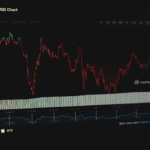In the rapidly evolving landscape of digital assets, strategic portfolio allocation is crucial for optimizing risk and return. As market volatility can significantly impact investment outcomes, adopting effective diversification strategies, asset allocation models, and risk management techniques is essential for investors seeking to maximize returns while minimizing exposure to market fluctuations.
Diversification Strategies
Diversification is a fundamental principle in investment strategy, designed to reduce risk by spreading investments across various assets. In the context of digital assets, diversification involves allocating funds across a mix of cryptocurrencies, stablecoins, and tokenized assets. By not putting all eggs in one basket, investors can mitigate the impact of a downturn in any single asset.
A leading digital asset consulting expert will often recommend diversifying between major cryptocurrencies like Bitcoin and Ethereum, and smaller altcoins that may offer higher growth potential. Additionally, including NFTs (non-fungible tokens) and other digital collectibles in the portfolio can provide further diversification benefits. Consulting on NFTs and digital collectibles can help identify valuable opportunities within this emerging sector.
Asset Allocation Models
Effective asset allocation involves determining the optimal distribution of investments across different asset categories. For digital assets, this means balancing high-risk, high-reward investments with more stable options. Digital asset strategy consulting firms provide insights into developing tailored allocation models that align with an investor’s risk tolerance and investment goals.
One popular model is the 60/40 allocation, where 60% of the portfolio is invested in high-risk digital assets and 40% in more stable investments like stablecoins or asset-backed tokens. This model helps to cushion against extreme volatility while still providing growth opportunities.
Risk Management Techniques
Risk management is pivotal in navigating the volatile digital asset market. Comprehensive digital asset consulting services include risk assessment and mitigation strategies to protect investments from significant losses. Techniques such as stop-loss orders, which automatically sell assets when their price falls to a certain level, can limit potential losses.
Moreover, blockchain and digital asset consulting can assist in employing advanced risk management tools like algorithmic trading and quantitative analysis. These methods leverage data and statistical models to predict market trends and make informed investment decisions.
Enhancing Returns
To enhance returns, digital asset consulting for startups often focuses on innovative investment strategies such as yield farming and staking. Yield farming involves lending or staking digital assets to earn interest or additional tokens while staking refers to holding assets in a blockchain to support network operations and earn rewards. These strategies can provide passive income and boost overall portfolio returns.
Additionally, evaluating digital asset consulting firms can help investors select partners who offer customized digital asset consulting solutions tailored to their specific needs. This includes digital asset advisory services for continuous portfolio optimization and strategic digital asset consulting partners for long-term growth.
In the dynamic world of digital assets, strategic portfolio allocation is key to optimizing risk and return. Diversification, effective asset allocation, and robust risk management are essential components of a successful investment strategy. By leveraging the expertise of global digital asset consulting firms and employing best practices in digital asset consulting, investors can navigate the market’s complexities and achieve sustainable growth. Whether you’re a startup or an established entity, secure digital asset consulting solutions can help you enhance ROI and capitalize on the opportunities within the digital asset landscape. Work with the experts at Kenson Investments.














